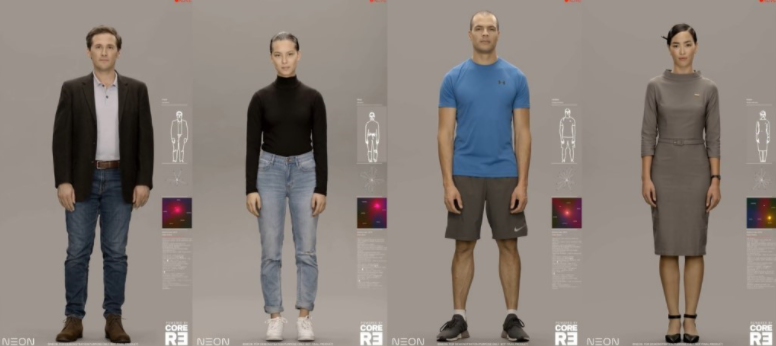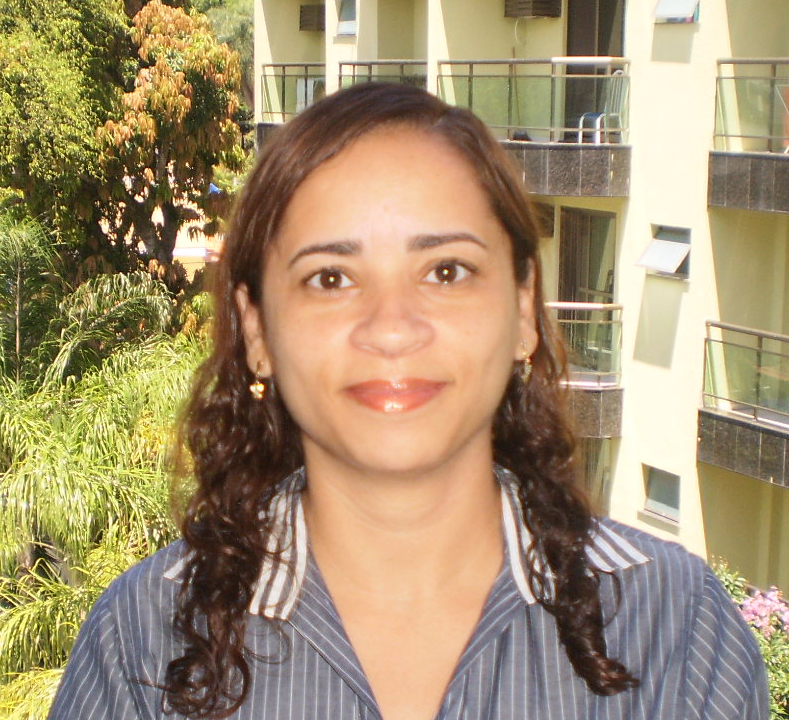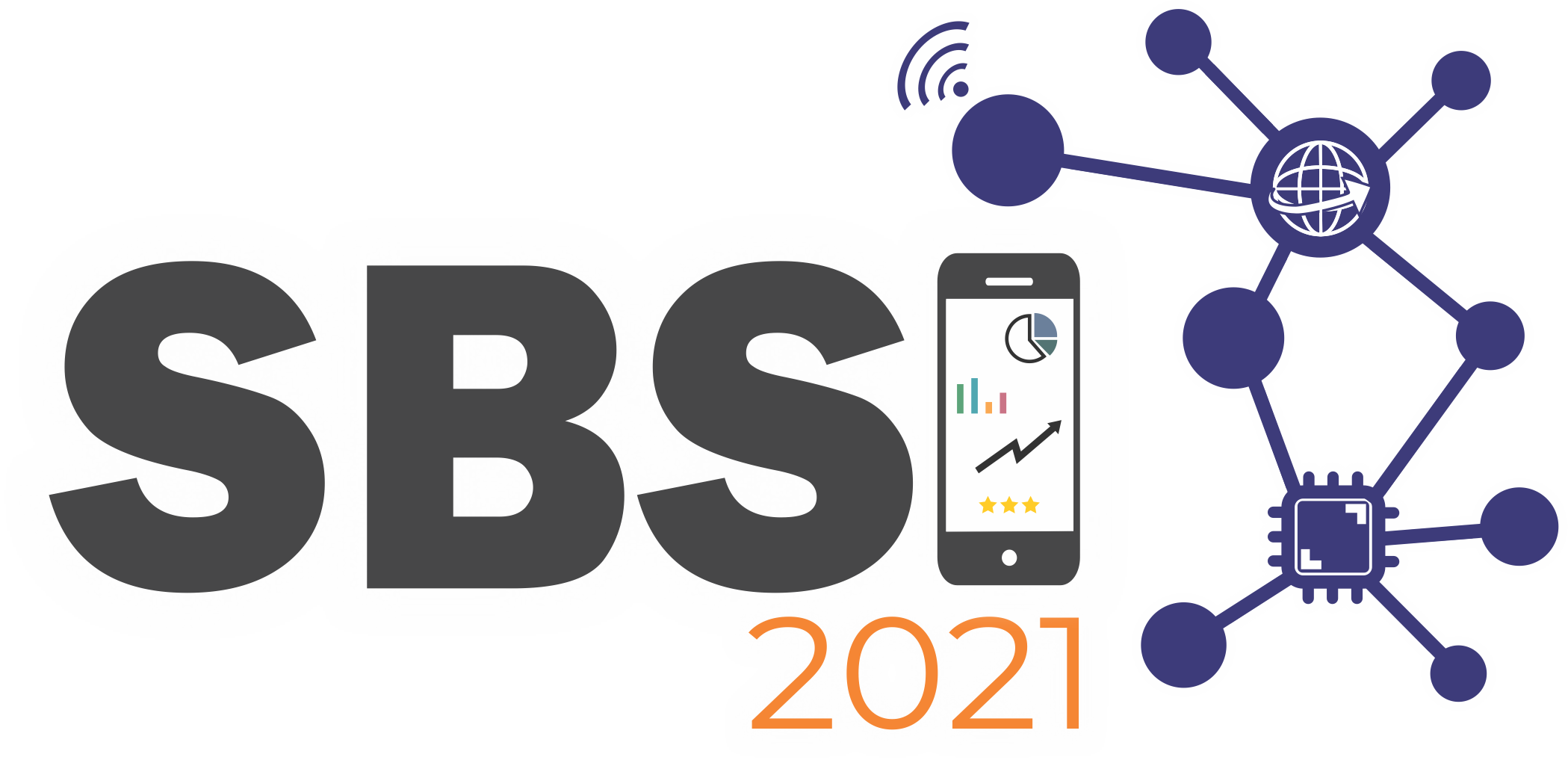Keynotes
Title: Digital Humans: Putting a Face on AI Agents
Prof. Dr. Alan R. Dennis (Indiana University)
Date: June 07, 2021

Abstract: If Siri had a human face, would you trust her more? Or would it make you feel uneasy? Digital humans are virtual agents controlled by artificial intelligence (AI). In recent years, companies have been developing very realistic looking digital humans (see below), but how do users feel about interacting with them when they are used as virtual agents? We used a controlled lab experiment to examine users’ behavior, trust, affinity, and preference towards a real human travel agent appearing via video (e.g., Zoom) as well a very realistic avatar. Half of the participants were (deceptively) told the avatar was a virtual agent controlled by AI while the other half were told the digital human was an avatar controlled by the same human travel agent. Participants rated the Zoom-video human agent more trustworthy, had more affinity for him, and preferred him to both digital avatar versions (human or AI). There was no difference in behavior, affinity, trustworthiness, and preferences for the agent between the AI-controlled digital human and the human-controlled digital avatar. An EEG analysis showed no differences in cognition among the treatments. Thus, use of a realistic digital avatar lowered affinity, trustworthiness, and preferences, but how the avatar was controlled (by human or AI) had no effect. The conclusion is that improved visual fidelity alone makes a significant positive difference and that users are not averse to advanced AI simulating human presence, some may even be anticipating such an advanced technology.

About the speaker

Alan R. Dennis is Professor of Information Systems and holds the John T. Chambers Chair of Internet Systems in the Kelley School of Business at Indiana University. He was named a Fellow of the Association for Information Systems in 2012. Professor Dennis has written more than 150 research papers, and has won numerous awards for his theoretical and applied research. His research focuses on four main themes: team collaboration; fake news on social media; cybersecurity; and artificial intelligence. He also has written four books (two on data communications and networking, and two on systems analysis and design). His research has been reported in the popular press almost 1000 times, including the Wall Street Journal, Forbes, USA Today, The Atlantic, CBS, Fox Business Network, PBS, Canada’s CBC and CTV, UK’s Daily Mail and the Telegraph, Australia’s ABC, France’s Le Figaro, South Africa’s Sowetan Live, Chile’s El Mercurio, China Daily, India’s Hindustan Times, and Indonesia’s Tribune News. He is the Past President of the Association for Information Systems.
Title: Linking Collective Attention to Collective Actions
Prof. Dr. Yu-Ru Lin (University of Pittsburgh)
Date: June 10, 2021
Abstract: Attention is a scarce resource in this information-rich world. Measuring and predicting the quantity of attention is crucially relevant to online content hosting, commerce, news media, political movements, public attitudes, and collective decision-making. In this talk, I will present our recent works that link online attention and communication patterns to real-world actions. Using large-scale, longitudinal communication traces collected from Twitter and Youtube, we quantitatively characterize and compare the online activities and attention by online users holding distinct views, and link the attention dynamics to societal trends and events related to social issues including gun violence, abortion, anti-racism, and immigration. These studies help answer several important questions toward transforming society, such as how protests connect to the changes in online prejudice, how opposing political views have been marketed across different social media, and how crises may bring opportunity for reconciling conflicts.
About the Speaker

Yu-Ru Lin is an Associate Professor in the School of Computing and Information at the University of Pittsburgh, where she directs the PITT Computational Social Dynamics Lab (PICSO LAB). She researches on the interaction of Computational Social Science, Data Mining, and Visualization. She specializes in using social network and text data along with statistical learning tools and social theories to study phenomena spanning societal events and policy, anomalous behaviors, and other crucially important complex patterns concerning collective attention and actions, as well as human and social dynamics in response to societal risks. Her work has appeared in prestigious scientific venues and has been featured in press including WSJ, The Boston Globe, The Atlantic, MIT News, and NPR. She has authored or coauthored more than 100 refereed journal and conference papers and served on more than 50 conference program committees in the areas of big data, network science and computational social science, including KDD, WWW, IJCAI, WSDM, MM, ICWSM, etc. She has served as a chair/co-chair of leading social media and web mining conferences such as AAAI ICWSM and TheWebConference/WWW (Web & Society Track) and is serving as an Associate Editor for journals including PLOS ONE and Springer EPJ Data Science. She was selected as a Fellow of Kavli Frontiers of Science, National Academy of Sciences (NAS). Her research has received funding from the industry such as Amazon and Adobe, and government agencies including NSF, DARPA, AFOSR, and other agencies. Additional information can be found at: http://www.yurulin.com/.
Title: The art of making yourself understood: challenges of producing explanations in AI applications for Social Good
Profa. Dra. Aline Paes (UFF)
Date: June 08, 2021
Abstract: In recent years, several areas of science, including Astronomy, Biology, Communication and Information, Engineering, Pharmacy, Humanities, Medicine, among others, have turned their eyes to Artificial Intelligence. The success and attention recently devoted to AI are fostered mainly by the expressive results achieved by sub-symbolic machine learning methods, notably those developed in the Deep Learning area. However, most of these methods fail at producing interpretable models whose decisions are directly understood by humans. Thus, the area known as “eXplainable AI” (XAI) aims to build AI systems that can provide explanations regarding their decisions. The main argument is that such a skill would provide the AI systems with transparency, justice, and equity, allowing users to understand the decision-making process and, as a consequence, increase their confidence in such decisions. In this talk, we will discuss the importance of developing interpretable methods and generating explanations in AI systems. In particular, we will focus on the need for transparency in using AI methods to address problems inspired by the sustainable development goals of the UN Agenda 2030 (“AI for Social Good”). We will talk about the challenges of making AI systems offer explanations acceptable to humans. These challenges include imbuing AI systems with explanatory skills that are not always available rationally in our human decision-making process. Additionally, deciding what would be a reasonable explanation, or at least an acceptable one, is a task that requires concepts and definitions from areas such as philosophy, social sciences, psychology, among others. Finally, we will discuss the choice between developing methods that generate decisions in a context that humans would understand or enrich black-box systems with mechanisms for generating explanations.
About the speaker

Aline Paes é professora do Instituto de Computação da Universidade Federal Fluminense (UFF), bolsista de Produtividade PQ-2 do CNPq e Jovem Cientista do Nosso Estado pela FAPERJ. Lidera o grupo de pesquisa MeLLL-UFF (Machine Learning and Language Learning) no Instituto de Computação e é colaboradora dos laboratórios LABESI, PROGraf, MediaLab, LMDC e AddLabs. É mestre e doutora em Engenharia de Sistemas e Computação, com ênfase em Inteligência Artificial, pela COPPE-Sistemas, UFRJ, com doutorado sanduíche por um ano no Departamento de Computação do Imperial College London, UK. Aline Paes atua na área de Ciência da Computação, com ênfase em Inteligência Artificial, com interesses e contribuições nos seguintes temas: aprendizado de máquina relacional, integrado a técnicas neurais, estatísticas e lógicas, aprendizado de representações para processamento de linguagem natural, atualização e adaptação de modelos por transferência de aprendizado, revisão de teorias, IA explicável, indução de programas, jogos e IA para o bem-estar social. Aline Paes tem publicado artigos regularmente em um dos principais periódicos da área de Aprendizado de Máquina (Machine Learning Journal), dentre outros, e em conferências nacionais e internacionais da área de Inteligência Artificial. Participa regularmente do comitê de programa dos principais congressos internacionais da área de Inteligência Artificial, a saber AAAI e IJCAI, dentre outros, além de ser revisora ad-hoc de periódicos internacionais. Já coordenou/coordena projetos de pesquisa aprovados por órgãos de fomento, incluindo dois Projetos Universais CNPq, um Projeto “APQ1 FAPERJ” e um Projeto “Jovem Cientista do Nosso Estado FAPERJ”, todos na área de Inteligência Artificial e Aprendizado de Máquina.
Title: Datafication of life
Prof. Dr. André Lemos (UFBA)
Date: June 09, 2021
Abstract: It discusses the datafication of life in the current
phase of development of digital culture based on three axes: social
relations, knowledge and nature. Datafication takes place in the
tracking of social relations mediated by digital platforms and as
"requisition" of the world in the form of operational data in two broad
domains: nature and knowledge. The first form of requisition is produced
by removing ore and energy for the production of equipment and to feed
capture, treatment and circulation of data. The second is the
translation of the world into data, generating an epistocratic algocracy
that can decide on the knowledge and management of public affairs. The
datafication of life is at the base of contemporary culture.
About the speaker

André Lemos
(http://andrelemos.info)
é Professor
Titular do Departamento de Comunicação e do Programa de
Pós-Graduação em
Comunicação e Cultura Contemporâneas da Faculdade de
Comunicação da
UFBA. É engenheiro mecânico formado pela UFBA (1984), Mestre
em
Política
de Ciência e Tecnologia pela COPPE/UFRJ (1991) e Doutor em
Sociologia
pela Université René Descartes, Paris V, Sorbonne (1995,
bolsa do
CNPQ).
Foi Visiting Scholar nas Universidades McGill e Aberta,
ambas no
Canadá
(2007-2008, bolsa de pós-doutorado pelo CNPq) e no
Programmable City
Lab
na National University of Irlanda, Maynooth (Bolsa estágio
Sênior,
CAPES, 2015-2016). Membro fundador da Associação Brasileira
de
Pesquisadores em Cibercultura (ABCIBER). Diretor do Lab404 -
Laboratório
de Pesquisa em Mídia Digital, Redes e Espaço
(http://lab404.ufba.br). É
atualmente pesquisador "1 A" do CNPq, Membro do Comitê
Gestor do
Instituto Nacional de Ciência e Tecnologia em Democracia
Digital
(INCT-DD), Membro Ssuplente do CGI (Brasil), Membro do
conselho
acadêmico da Cátedra Julian Assage de Tecnopolítica e
Cultura
Digital
(CIESPAL-Equador), Conselheiro substituto do Conselho de
Ciência e
Tecnologia do Estado da Bahia (CONCITEC) e Membro do
External
Advisory
Committee of DigiMedia (Digital Media and Interaction
research
centre) e
do Advisory Board d0 Journal of Digital Media & Interaction
da
Universidade de Aveiro, Portugal. André lemos foi Presidente
da
Associação Nacional dos Programas de Pós-Graduação em
Comunicação -
COMPÓS (2001-2003), Coordenador do Programa de Pós-Graduação
em
Comunicação e Cultura Contemporâneas da FACOM/UFBA
(1999-2001) e
Chefe
do Departamento de Comunicação (FACOM/UFBA). Foi editor da
Revista
Textos de Comunicação e Cultura (atual Contemporanea) em
1997.
Professor
visitante em várias universidades brasileiras e
estrangeiras. Foi
membro
titular do Comitê Assessor do CNPQ para a área de
comunicação
(2009-2012) e Coordenador Geral do Comitê Assessor para as
áreas de
Comunicação, Ciências da Informação, Museologia e Artes do
CNPq
(2011-2012). Atua na área de comunicação e sociologia, com
ênfase em
cultura digital ou cibercultura. Tem 13 livros
publicados/organizados e
dezenas de artigos em revistas acadêmicas (Qualis A e B) nas
áreas
de
comunicação e sociologia, nacionais e internacionais.
Formou, 20
mestres, 8 doutores e 2 pós-doutores. Membro de diversas
comissões
científicas de revistas nacionais e internacionais,
particularmente
das
revistas Sociétés (França), Teknokultura (Espanha), Canadian
Journal
of
Communication, Space and Culture e Wi. Journal of Mobile
Media,
Canadá,
entre outras. É membro do conselho consultivo internacional
para a
área
de “Digital Communities” do Prix Ars Electronica (Linz,
Austria) .
Fez
parte de diversas comissões nacional e internacionais como
"Best of
Blogs", Deutsche Welle (Bonn, Alemanha), Funarte, Petrobrás,
Memefest,
Prêmio Sérgio Mota, entre outros.
Abstract: It discusses the datafication of life in the current phase of development of digital culture based on three axes: social relations, knowledge and nature. Datafication takes place in the tracking of social relations mediated by digital platforms and as "requisition" of the world in the form of operational data in two broad domains: nature and knowledge. The first form of requisition is produced by removing ore and energy for the production of equipment and to feed capture, treatment and circulation of data. The second is the translation of the world into data, generating an epistocratic algocracy that can decide on the knowledge and management of public affairs. The datafication of life is at the base of contemporary culture.

André Lemos (http://andrelemos.info) é Professor Titular do Departamento de Comunicação e do Programa de Pós-Graduação em Comunicação e Cultura Contemporâneas da Faculdade de Comunicação da UFBA. É engenheiro mecânico formado pela UFBA (1984), Mestre em Política de Ciência e Tecnologia pela COPPE/UFRJ (1991) e Doutor em Sociologia pela Université René Descartes, Paris V, Sorbonne (1995, bolsa do CNPQ). Foi Visiting Scholar nas Universidades McGill e Aberta, ambas no Canadá (2007-2008, bolsa de pós-doutorado pelo CNPq) e no Programmable City Lab na National University of Irlanda, Maynooth (Bolsa estágio Sênior, CAPES, 2015-2016). Membro fundador da Associação Brasileira de Pesquisadores em Cibercultura (ABCIBER). Diretor do Lab404 - Laboratório de Pesquisa em Mídia Digital, Redes e Espaço (http://lab404.ufba.br). É atualmente pesquisador "1 A" do CNPq, Membro do Comitê Gestor do Instituto Nacional de Ciência e Tecnologia em Democracia Digital (INCT-DD), Membro Ssuplente do CGI (Brasil), Membro do conselho acadêmico da Cátedra Julian Assage de Tecnopolítica e Cultura Digital (CIESPAL-Equador), Conselheiro substituto do Conselho de Ciência e Tecnologia do Estado da Bahia (CONCITEC) e Membro do External Advisory Committee of DigiMedia (Digital Media and Interaction research centre) e do Advisory Board d0 Journal of Digital Media & Interaction da Universidade de Aveiro, Portugal. André lemos foi Presidente da Associação Nacional dos Programas de Pós-Graduação em Comunicação - COMPÓS (2001-2003), Coordenador do Programa de Pós-Graduação em Comunicação e Cultura Contemporâneas da FACOM/UFBA (1999-2001) e Chefe do Departamento de Comunicação (FACOM/UFBA). Foi editor da Revista Textos de Comunicação e Cultura (atual Contemporanea) em 1997. Professor visitante em várias universidades brasileiras e estrangeiras. Foi membro titular do Comitê Assessor do CNPQ para a área de comunicação (2009-2012) e Coordenador Geral do Comitê Assessor para as áreas de Comunicação, Ciências da Informação, Museologia e Artes do CNPq (2011-2012). Atua na área de comunicação e sociologia, com ênfase em cultura digital ou cibercultura. Tem 13 livros publicados/organizados e dezenas de artigos em revistas acadêmicas (Qualis A e B) nas áreas de comunicação e sociologia, nacionais e internacionais. Formou, 20 mestres, 8 doutores e 2 pós-doutores. Membro de diversas comissões científicas de revistas nacionais e internacionais, particularmente das revistas Sociétés (França), Teknokultura (Espanha), Canadian Journal of Communication, Space and Culture e Wi. Journal of Mobile Media, Canadá, entre outras. É membro do conselho consultivo internacional para a área de “Digital Communities” do Prix Ars Electronica (Linz, Austria) . Fez parte de diversas comissões nacional e internacionais como "Best of Blogs", Deutsche Welle (Bonn, Alemanha), Funarte, Petrobrás, Memefest, Prêmio Sérgio Mota, entre outros.
SBSI 2021 Publication Chair:
Awdren FontãoUniversidade Federal do Mato Grosso do Sul (UFMS)
SBSI 2021 General Chairs::
Rafael D. AraújoUniversidade Federal de Uberlândia (UFU)
rafael (dot) araujo (at) ufu (dot) br
Fabiano A. Dorça
Universidade Federal de Uberlândia (UFU)
fabianodor (at) ufu (dot) br

